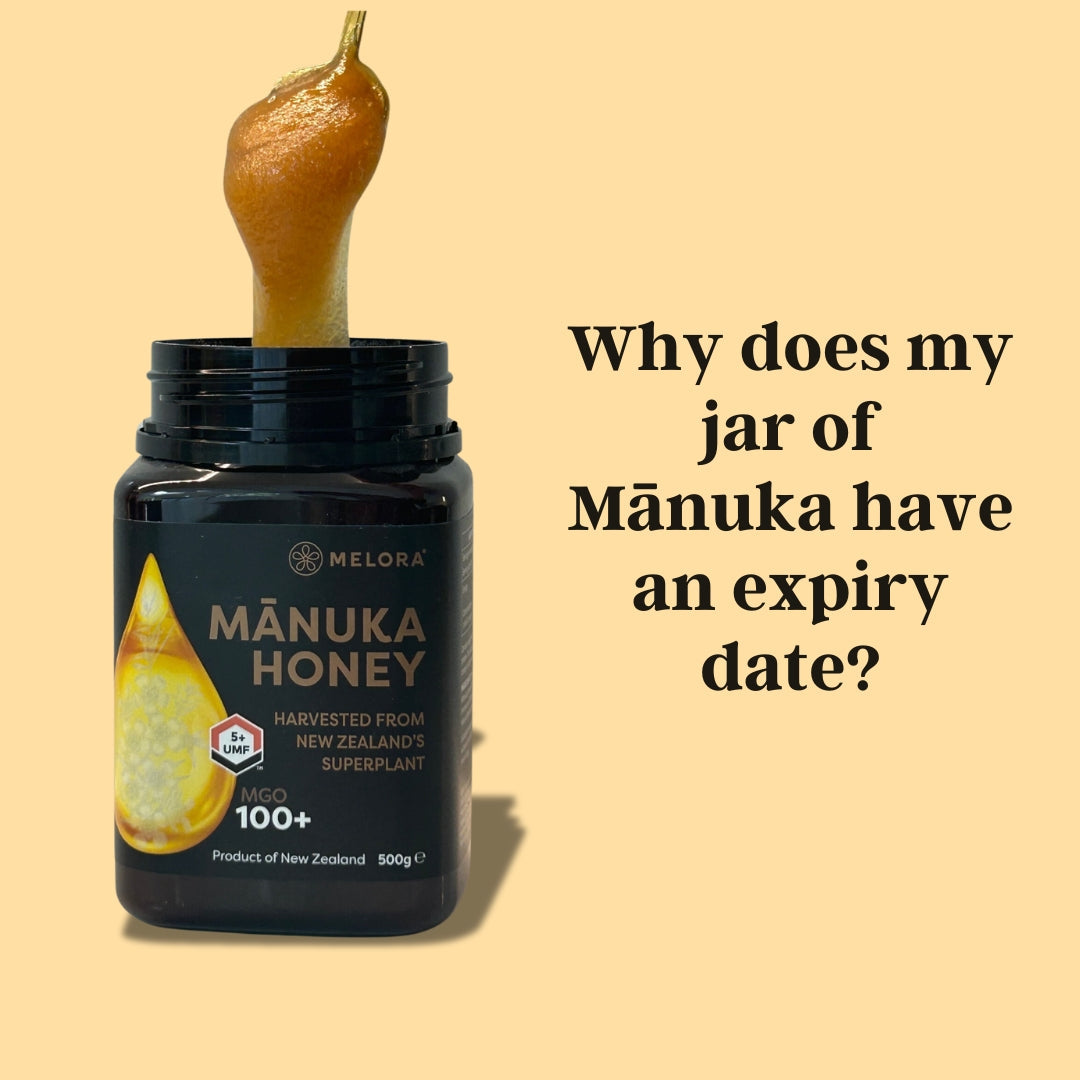Mānuka honey, a unique type of honey native to New Zealand, is derived from the nectar of the Mānuka tree (Leptospermum scoparium). It has gained international acclaim for its distinctive taste and remarkable health benefits, which are attributed to its high concentration of methylglyoxal (MGO), a compound with potent antibacterial properties. Unlike regular honey, Mānuka honey's therapeutic properties make it a popular choice for medicinal and cosmetic purposes.
Freshness and Quality of Mānuka Honey
The freshness of Mānuka honey is not a critical factor in maintaining its quality and effectiveness. Manuka is normally stored as it can increase in its MGO level. Mānuka honey is typically characterised by its thick, viscous texture, dark amber colour, and rich, earthy flavour. Older Mānuka, will have a bolder taste, especially the higher grades. The unique attributes of Mānuka honey, particularly its MGO content, are meticulously measured and rated, often displayed on the packaging as a Unique Mānuka Factor (UMF) or MGO rating. These ratings help consumers identify the potency and purity of the honey, with higher ratings indicating stronger antibacterial properties.
Fresh Mānuka honey, when harvested and processed correctly, retains its unique properties and can offer a range of health benefits, including wound healing, sore throat relief, and improved digestive health. However, maintaining the grade of Mānuka and quality of Mānuka honey requires proper storage and handling.
Shelf Life of Mānuka Honey
One of the most frequently asked questions about Mānuka honey is whether it expires. Technically, honey is a natural product with an incredibly long shelf life. Archaeologists have discovered pots of honey in ancient Egyptian tombs that are still edible after thousands of years. This impressive longevity is due to honey's low water content and high acidity, which create an inhospitable environment for bacteria and microorganisms.
Mānuka honey, like other types of honey, does not have a definitive expiration date. However, its grade of MGO and efficacy may degrade or it can increase over time, depending on how this Manuka is stored.. Generally, commercially packaged Mānuka honey comes with a "best before" date, typically ranging from two to five years from the date of production. This date serves as a guideline for optimal quality and flavour rather than an indication of spoilage.
Factors influencing the shelf life of Mānuka honey include:
Storage Conditions: Proper storage is crucial to preserving the quality of Mānuka honey. It should be stored in a cool, dry place away from direct sunlight and heat sources. Exposure to heat and light can cause the honey to darken and lose some of its beneficial properties.
Container Integrity: Mānuka honey should be stored in airtight containers to prevent moisture absorption and contamination. Glass jars are preferable as they do not react with the honey and provide an effective barrier against air and moisture.
Temperature Fluctuations: Mānuka honey is best stored at a stable temperature, ideally between 50-70°F (10-21°C). Fluctuations in temperature can cause good quality Mānuka to liquefy or harden. Other honeys would normally crystallise or ferment, as will low quality Mānuka, affecting the honey's texture and flavour.
Storage Practices for Mānuka Honey
To maximise the shelf life and maintain the quality of Mānuka honey, follow these storage guidelines:
Airtight Containers: Always store Mānuka honey in tightly sealed containers. crew-top lids are ideal as they provide an excellent seal and do not impart any flavours or chemicals to the honey.
Cool, Dark Storage: Keep the honey in a cool, dark place such as a cupboard. Avoid storing it near ovens or windows where it may be exposed to heat and light.
Consistent Temperature: Try to maintain a consistent storage temperature. Fluctuations can negatively impact the honey's texture and effectiveness.
Clean Utensils: Always use clean, dry utensils when scooping honey to prevent introducing moisture or contaminants that could lead to spoilage.
Conclusion
Mānuka honey, with its unique antibacterial properties and health benefits, is a valuable addition to any household. While it does not technically expire, its quality and potency may diminish or increase over time, especially if not stored correctly or processed correctly. By adhering to proper storage practices, you can ensure that your Mānuka honey retains its beneficial properties and remains a potent natural remedy for years to come.
Melora: Supplying Award-Winning New Zealand Mānuka Honey
Melora is a leading supplier of premium Mānuka honey from New Zealand, renowned for our dedication to quality, sustainability, and authenticity. We source our honey from locations across New Zealand, where the Manuka tree thrives in its natural habitat. Melora’s commitment to excellence is reflected in its meticulous harvesting, processing, and testing practices, ensuring that every jar of Mānuka honey meets the highest standards of purity and potency.

